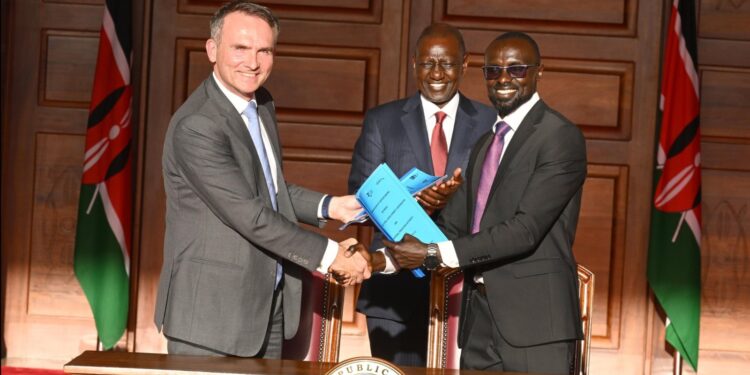Kenya’s recent Memorandum of Understanding (MoU) with Abu Dhabi’s Al Dahra agribusiness company marks a significant step in revitalizing the long-stalled Galana-Kulalu irrigation project. This agreement not only promises to unlock the project’s full potential but also serves as a strategic initiative to enhance Kenya’s food security.
Revitalizing a Stalled Project
The Galana-Kulalu Food Security Project, initially envisioned as a key solution to Kenya’s recurring maize shortages, has faced numerous implementation setbacks. Since its inception, delays and contractor disputes have hindered progress, with the project stalling completely in 2019. The new MoU paves the way for renewed efforts, leveraging private sector investment to overcome financial and logistical challenges.
Enhancing Food Security
Kenya has an annual maize consumption of approximately 48 million bags, yet production deficits frequently result in food shortages and import dependency. The revitalized project is expected to meet 41% of the country’s maize demand upon completion, significantly reducing reliance on imports and ensuring stable food supplies.
Beyond maize production, the project is set to transform Kenya’s agricultural landscape by expanding irrigation capacity. The planned construction of Galana Dam, with a capacity of 306 million cubic meters, will support irrigation across an additional 350,000 acres. This expansion will diversify food production, bolster national food reserves, and contribute to price stability in the market.
Private Sector Investment and Economic Growth
Al Dahra’s proposed $800 million investment underscores the importance of public-private partnerships in large-scale agricultural projects. By leasing 200,000 acres of farmland, the company will introduce modern farming techniques, enhance yield efficiency, and create employment opportunities. The initiative aligns with the broader Comprehensive Economic Partnership Agreement (CEPA) between Kenya and the UAE, fostering bilateral trade and investment.
Sustainable Agricultural Development
The Galana-Kulalu project’s expansion under a Public-Private Partnership (PPP) model ensures long-term sustainability. The initiative integrates innovative irrigation techniques and climate-resilient agricultural practices, reducing the vulnerability of Kenya’s food production to erratic weather patterns. Additionally, the project aims to strengthen local supply chains by supporting smallholder farmers and agribusiness enterprises.
Strategic National Impact
With President William Ruto championing irrigation as a cornerstone of Kenya’s food security strategy, the MoU signals a renewed commitment to agricultural self-sufficiency. The agreement’s implementation will not only secure food supply but also boost rural economies, enhance export potential, and solidify Kenya’s position as a key agricultural player in the region.
By overcoming previous challenges and harnessing strategic partnerships, the Galana-Kulalu irrigation project is poised to be a transformative force in Kenya’s quest for food security. The MoU with Al Dahra represents a decisive step toward agricultural resilience, economic growth, and long-term sustainability.










